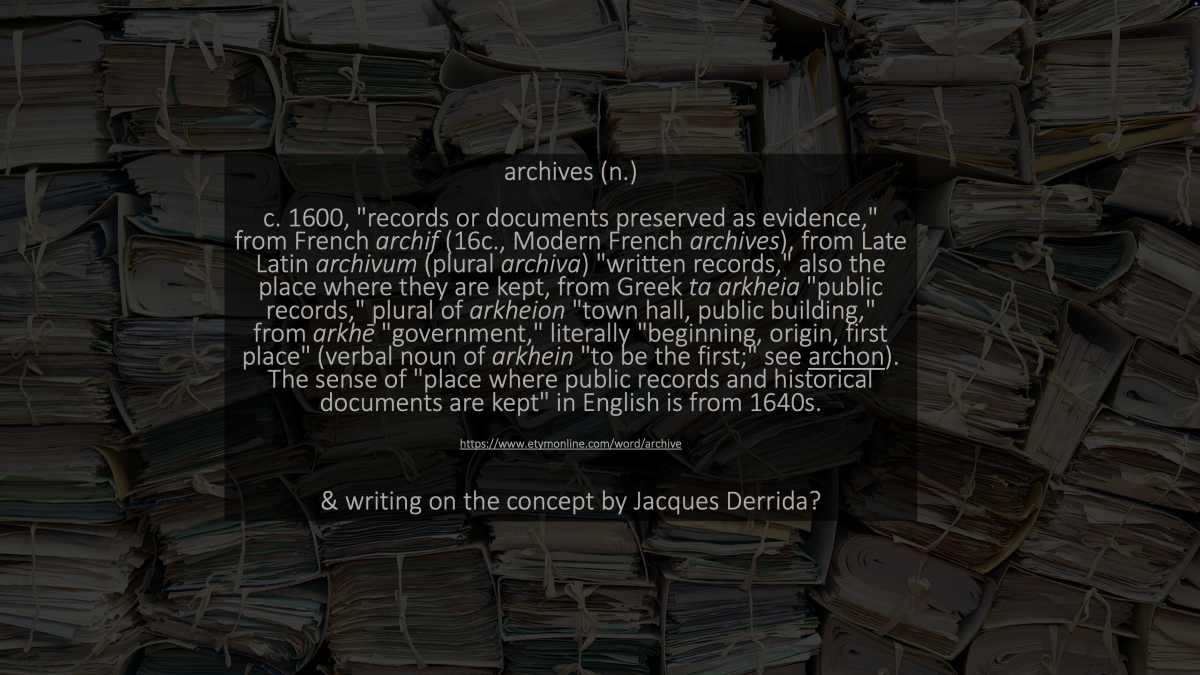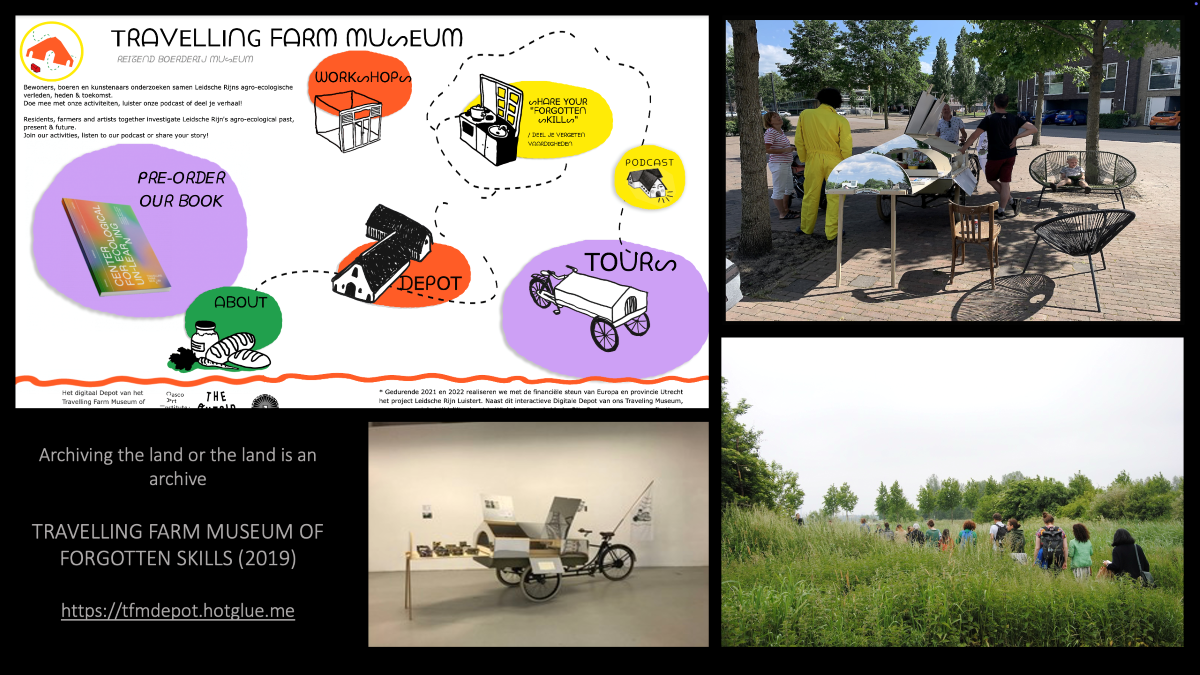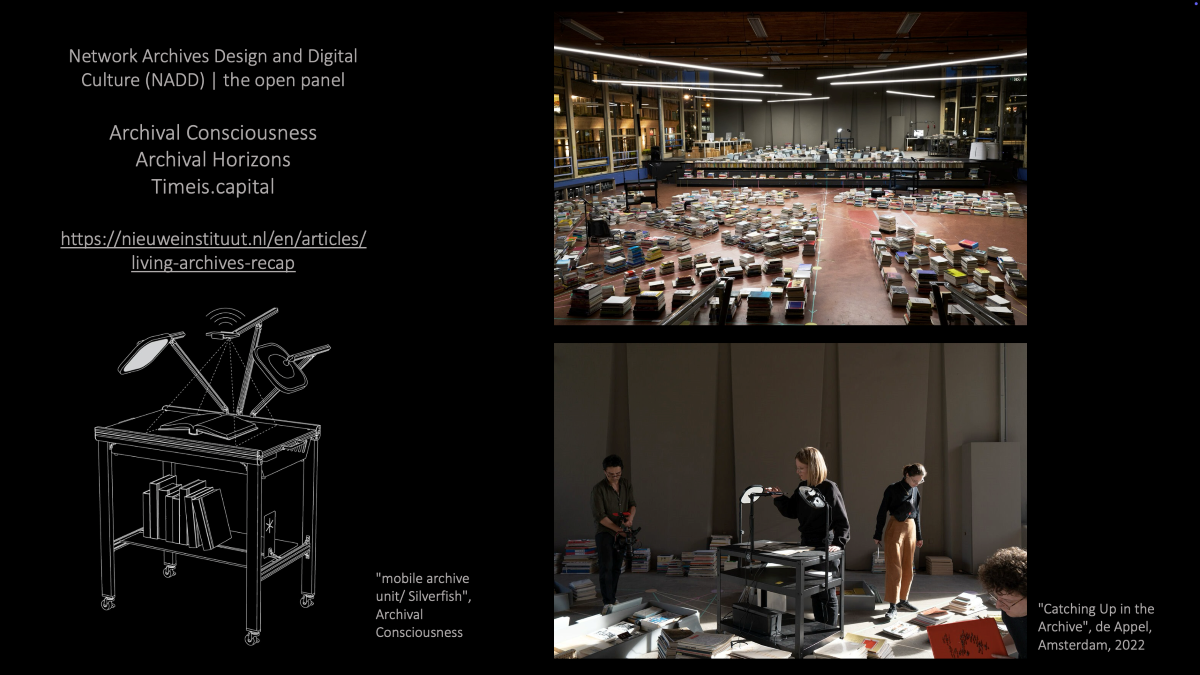READING GROUP II
READING GROUP II
At the initiative of WP 2 and WP 5, Irena Charwilska, Rick Dolphijn and Raul Matta set up a monthly close-reading seminar📖 which will be used to give rise to the key concepts of the CONVIVIUM PROJECT, to read those texts in which it is creatively launched and to get inspiration from artworks that somehow deal with these issues and make us think💡.
At the second close-reading seminar we were looking for concepts that are especially relevant to us in the CONVIVIUM project; this time, the concept of the archive was the topic of our exploration and discussion.
During this session, chaired by Justyna Jakubiec and Kevin Lai (WP3 and WP 5), we read an excerpt from Jacques Derrida’s text, Archive Fever: A Freudian Impression. The text itself, a meditation on Freud’s archive and a book about him, is concerned with problematising what archives are doing, what they mean, and how they are constructed. As such, it is not a prompt to come to a strict agreement about what an archive is; on the contrary – it is a cue showing that the archive requires a lot of conceptual thinking. Through its strong etymological focus, the text encourages us to approach the archive as not only a place where materials are kept but also a marker of a ‘starting point’ from which a particular community establishes itself. That, necessarily, concerns a process of choosing, of the relationship between the included and excluded, and the question of memory.
As such, the archive should not be seen as static – rather, Derrida prompts us to think of archivisation, the processual character that the archive embodies, a particular form of performance that takes place in the archive. For us in CONVIVIUM, the process of rethinking our heritages also concerns thinking with and rethinking the archive – not only as understood institutionally but also conceptually. The concept should make us think of the many relationships that we study: democratisation, participation, memorisation, knowledge production, choice-making, and others. Derrida prompts us to think of the archive not as a stabilised concept, but as an impression – or a series of impressions that opens up towards the future. The archive, we read, is “a concept in the process of being formed;” it concerns thinking the future.





